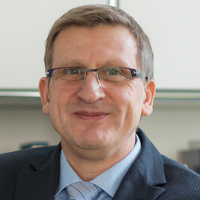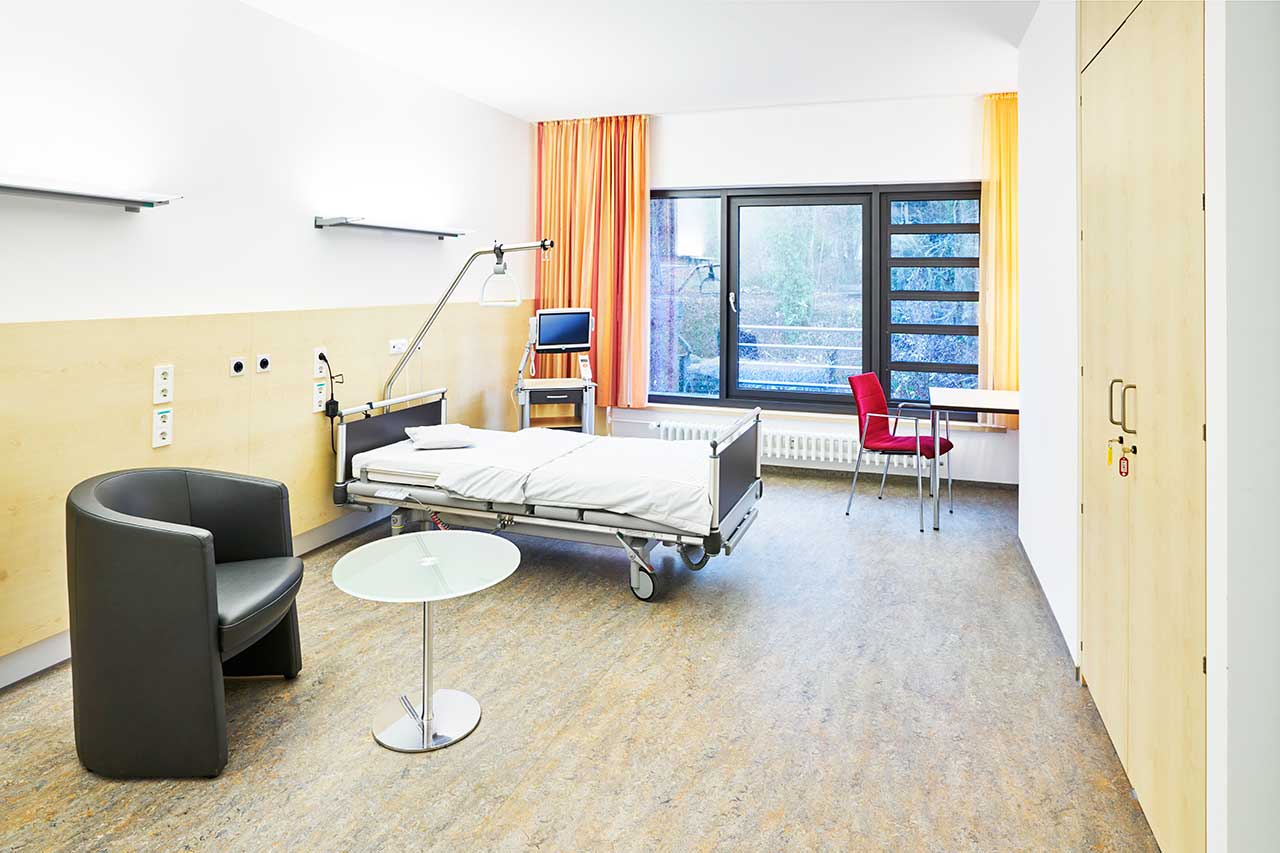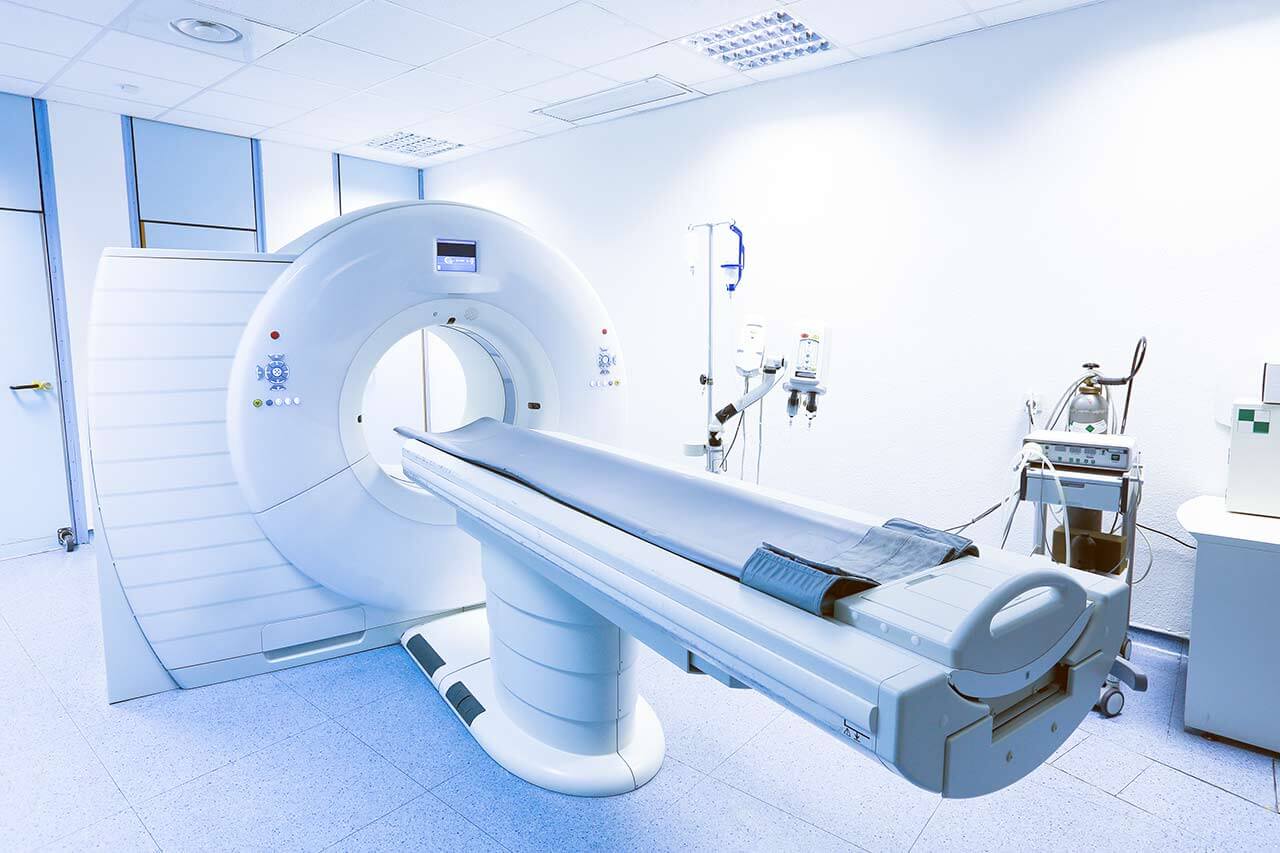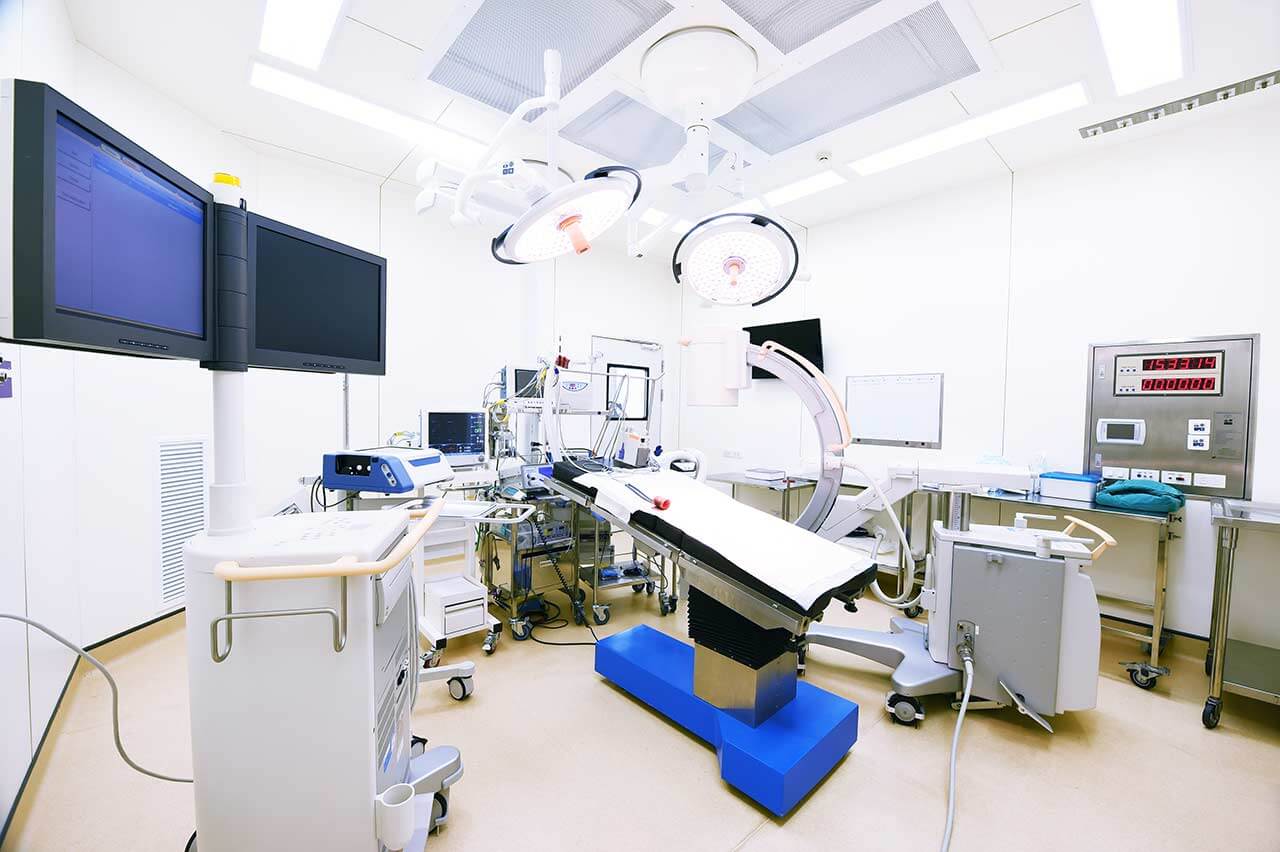
The program includes:
- Initial presentation in the clinic
- clinical history taking
- physical examination
- cardiological examination
- laboratory tests:
- complete blood count
- general urine analysis
- biochemical analysis of blood
- TSH-basal, fT3, fT4
- indicators of inflammation
- indicators blood coagulation
- Cardiological examination
- Measurement of arterial blood pressure, EKG
- Cardiac monitoring (24h)
- ECHO
- Transesophageal echocardiography (TEE)
- nursing services
- full hospital accommodation
- explanation of individual treatment plan
Required documents
- Medical records
- Echocardiography (if available)
Service
You may also book:
 BookingHealth Price from:
BookingHealth Price from:
About the department
The Department of Pediatric Cardiology at the University Hospital Erlangen offers the full range of highly accurate diagnostics and effective treatment of congenital and acquired heart defects in children. Pediatric cardiologists admit patients of all age groups, including newborns. The department's specialists annually perform many diagnostic examinations of the heart and more than 300 cardiac catheterization procedures, including those for therapeutic purposes. The competence of pediatric cardiologists also includes monitoring of adults with congenital heart defects, which is carried out within the certified center. Pediatric cardiologists cooperate closely with pediatric cardiac surgeons and often jointly develop the most effective treatment regimens to restore normal heart function in children. Particular importance is attached to caring attitude towards young patients. The medical facility has created all the conditions for parents to be close to their children during treatment.
The department is headed by Prof. Dr. med. Sven Dittrich. The doctor has more than 24 years of clinical experience, so he successfully copes with even the most severe heart defects in children. Of particular interest to Prof. Dittrich is cardiac catheterization for both diagnostic and therapeutic purposes in children. The specialist gets along well with children and makes every effort so that the young patient does not feel fear of the upcoming treatment.
State-of-the-art medical equipment allows the doctors of the pediatric medical facility to carry out the most accurate examination and make the correct diagnosis based on its results. Basic diagnostic tests include various modifications of electrocardiography and echocardiography. The range is complemented by more specialized examinations, for example, stress tests, long-term ECGs, special types of ultrasound scanning, cardiac MRI or CT, as well as interventional diagnostic procedures within the cardiac catheterization laboratory. The team of the department's doctors takes a responsible approach to the choice of diagnostic procedures in order to exclude unnecessary examinations and facilitate the therapeutic process for the child.
The department has a modern cardiac intensive care unit for providing medical care to children in life-threatening conditions. The centralized monitoring system was modernized here in 2017. It allows doctors to carry out the most effective and safest treatment. Nowadays, the intensive care unit has 18 beds equipped with state-of-the-art monitors.
The progressive cardiac catheterization laboratory serves for performing all sparing interventional procedures on the heart – both diagnostic and therapeutic ones. The most common procedures are balloon dilation, radiofrequency ablation, implantation of metal coils (coiling), placement of special occluders, stent implantation, etc. Intrauterine interventions (for example, for heart block) are also performed in collaboration with pediatric cardiac surgeons. In cooperation with obstetricians and gynecologists, the department's doctors carry out diagnostics of heart defects at the stage of intrauterine development.
The key areas of the department's clinical practice include the diagnostics and treatment of the following congenital heart defects in children:
- Ventricular septal defects
- Atrial septal defects
- Atrioventricular defects
- Coarctation of the aorta
- Patent ductus arteriosus
- Double aortic arch
- Persistent truncus arteriosus
- Transposition of the great vessels
- Tetralogy of Fallot
- Pulmonary atresia with ventricular septal defect
- Pulmonary atresia with intact interventricular septum
- Double outlet right ventricle
- Hypoplastic left heart syndrome
- Other heart pathologies in children
Curriculum vitae
Higher Education
- March 1982 - September 1984 Study of Sociology in Kiel.
- Since October 1984 Study of Medicine in Kiel.
- November 1991 3rd State Medical Exam at the Christian Albrecht University of Kiel.
Professional Medical Training
- Since July 2007 Head of the Department of Pediatric Cardiology at the University Hospital Erlangen.
- January 2006 - June 2007 Acting Head of the Department for Congenital Heart Diseases/Pediatric Cardiology, Center for Pediatric and Adolescent Medicine at the University Hospital Freiburg.
- November 2000 - December 2005 Managing Senior Physician, Department for Congenital Heart Diseases/Pediatric Cardiology, Center for Pediatric and Adolescent Medicine at the University Hospital Freiburg.
- June 1995 - October 2000 Department for Congenital Heart Disease/Pediatric Cardiology at the German Heart Center in Berlin.
- December 1991 - May 1995 Intern and Assistant Physician, Department of Pediatrics, University Hospital Kaiserslautern.
Additional Qualifications and Certificates
- January 1998 Pediatric and Adolescent Medicine.
- October 1998 Pediatric Cardiology.
- October 2000 Special Pediatric Intensive Care.
- April 2008 Treatment of Adults with Congenital Heart Defects.
Memberships in Professional Societies
- Since October 1999 German Society of Pediatric Cardiology.
- Since May 2003 Association for European Pediatric Cardiology (AEPC).
- Since November 2008 Scientific Advisory Board of the German Heart Foundation.
- Since November 2008 Project Group "National Quality Assurance" of the German Society of Pediatric Cardiology (DGPK).
- Since January 2010 Governing Council for Clinical and Registration Research in the Network of Competence for Congenital Heart Diseases.
Membership in Funds
- October 2003 Founding Member of the Kinderherzen retten e.V.
Scientific Activities
- December 1991 PhD thesis defense, Christian Albrecht University of Kiel. Subject: "Ontogenesis of the calcium-binding protein parvalbumin in the nervous system of rats".
- July 2001 Habilitation, Faculty of Medicine, Charite, Humboldt University of Berlin. Subject: "Studies of kidney function in the treatment of congenital heart defects".
- October 2001 Venia legendi in Pediatric and Adolescent Medicine, Faculty of Medicine, Charite, Humboldt University of Berlin.
- January 2002 Venia legendi in Pediatric and Adolescent Medicine, Faculty of Medicine, Albert Ludwig University of Freiburg.
- November 2005 Extraordinary Professor for Pediatric and Adolescent Medicine, Albert Ludwig University of Freiburg.
- July 2007 Professor for Pediatric Cardiology, University of Erlangen-Nuremberg.
Peer Review Activities
- Journal American College of Cardiology.
- Annals of Thoracic Surgery.
- European Journal of CardioThoracic Surgery.
- Intensive Care Medicine.
- Fetal Diagnosis and Therapy.
- Annals of Hematology.
- Pediatric Nephrology.
- Archives of Medical Research.
- Canadian Institute of Health Research.
- Eastern Journal of Medicine.
- European Journal of Pediatrics.
- Klinische Pädiatrie.
Photo of the doctor: (c) Universitätsklinikum Erlangen
About hospital
According to the Focus magazine, University Hospital Erlangen ranks among the best medical facilities in Germany!
The hospital is one of the leading healthcare facilities in Bavaria and offers top-class medical care distinguished by the close intertwining of clinical activities with research and training of medical students. The hospital was founded in 1815 and today is proud of its rich traditions, numerous medical achievements and an excellent reputation not only in Germany, but also in the international arena. The hospital has 25 specialized departments, 7 institutes and 41 interdisciplinary centers, whose experts work tirelessly for the benefit of their patients.
The hospital has the status of a maximum care center, and therefore it represents almost all fields of modern medicine. Oncology, transplant medicine, and robot-assisted surgery are among the top priorities of the clinical activities of the medical complex. Oncology is represented by the Comprehensive Cancer Center Erlangen, which is one of 13 centers of excellence in Germany certified by the German Cancer Society. The university hospital has a high-tech center with high success rates for heart, liver, kidney, pancreas, cornea and bone marrow transplants. In addition, the hospital is a leader in the use of robot-assisted surgery. The medical facility has at its disposal innovative robotic technologies, in particular the da Vinci Surgical System, with the help of which surgeons perform many sparing interventions in various medical fields.
The medical team of the hospital consists of highly professional therapists, surgeons and nursing staff. The focus of their efforts is on the patient, his health and peace of mind, as well as comfort during treatment. The clinical practice of doctors is based on an individual approach to each case, which results in high treatment success rates. State-of-the-art technical equipment also plays an important role in the therapeutic process. The hospital is proud of the most advanced devices for imaging diagnostics (X-ray, ultrasound, CT, MRI, PET-CT, SPECT-CT, etc.), endoscopic examinations, laboratory tests, as well as specially equipped operating rooms for robot-assisted interventions, image-guided therapeutic manipulations, minimally invasive and classical surgeries of any complexity. Thus, the doctors of the university hospital have all the necessary resources to effectively treat the most severe pathologies and save lives.
The combination of high-tech equipment, experienced and highly qualified personnel, as well as strict adherence to the standards of modern medicine, form a solid foundation for the provision of the best medical care at the European level. An undeniable proof of the high prestige of the hospital is the constantly growing number of patients who come here from various regions of Germany and other countries of the world.
Photo: (с) depositphotos
Accommodation in hospital
Patients rooms
The patients of the University Hospital Erlangen live in comfortable rooms with light colors and modern design. Each patient room has an ensuite bathroom with shower and toilet. The furnishing of the patient room includes an automatically adjustable bed with an orthopedic mattress, a bedside table, a wardrobe, a table and chairs for receiving visitors, a TV, a radio and a telephone. Wi-Fi can be provided upon request. The use of a mobile phone is prohibited in many rooms of the hospital.
Patients can also live in enhanced-comfort rooms with a more sophisticated design. The enhanced-comfort rooms additionally include upholstered furniture, a minifridge and a safe.
Meals and Menus
The hospital offers healthy and tasty food distinguished by many awards, including the 1st place in the prestigious ESSEN PRO GESUNDHEIT competition of the Bavarian State Ministry of the Environment and Consumer Protection.
The patient and the accompanying person have three meals a day. Breakfast is served buffet style: scrambled eggs, boiled eggs, sausage, cheese, bread and buns with butter and jam, cereals, etc. There are three set menus for lunch and dinner to choose from: a classic menu featuring local cuisine dishes, a Mediterranean menu and a vegetarian menu.
If for some reason you do not eat all the foods, you will be offered an individual menu. Please inform the medical staff about your dietary preferences prior to the treatment.
The hospital also houses many cafeterias, which will delight with a wide range of delicious dishes and drinks.
Further details
Standard rooms include:
Religion
The hospital regularly hosts catholic and evangelical devine services. The services of representatives of other religions are available upon request.
Accompanying person
During an inpatient program, an accompanying person can stay with you in the patient room or in a hotel of your choice.
Hotel
During an outpatient program, you can stay in a hotel of your choice. The managers will help you choose the most suitable options.




